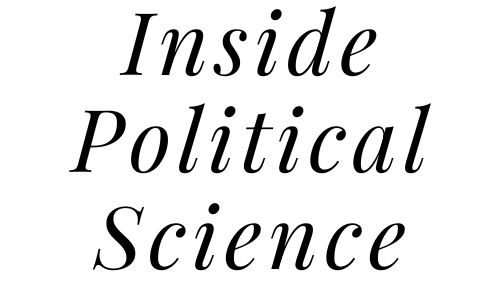
Central to libertarian thought is the belief in minimal government intervention in both personal and economic matters. This philosophy extends to the realm of government spending, where libertarians advocate for a drastic reduction in the size and scope of government expenditures.
In this article, we will delve into the intricacies of libertarian views on government spending, exploring their stance on various key areas such as defense, healthcare, education, welfare programs, and more. By understanding these perspectives, we can gain insights into the broader principles that underpin libertarian thought and its implications for governance and society.
Libertarian Views on Government Spending in Different Areas
Libertarian views on government in general and government spending in specific is for a minimalistic approach, arguing that excessive government intervention and government spending not only infringes on individual liberties but also leads to inefficiency and economic distortions. In this respect libertarian views on government spending very much align with conservative views.Let’s explore how this philosophy applies to different areas of government expenditure:
#1. Defense Spending
From a libertarian perspective, defense spending should be limited to the protection of individual rights and national sovereignty. The libertarian view on defense spending argues against excessive military interventions and foreign wars, advocating for a more restrained foreign policy.
Libertarians believe in maintaining a strong national defense but emphasize the importance of fiscal responsibility and prioritization of essential defense needs over excessive military spending. They argue that a leaner, more efficient defense budget is not only more cost-effective but also aligns better with libertarian principles of limited government intervention.
#2. Spending on Healthcare
Libertarians believe in a free-market approach to healthcare, viewing government involvement as a distortion of the market. They argue that a competitive healthcare system would lead to lower costs and better quality of care.
In the realm of healthcare, libertarians often advocate for policies that promote competition and consumer choice, such as health savings accounts (HSAs) and deregulation of the healthcare industry. They argue that these measures would empower individuals to make healthcare decisions based on their needs and preferences, leading to a more efficient and responsive healthcare system.
#3. Spending on Education
Libertarian views on education advocate for school choice and voucher programs, arguing that competition among schools would improve the quality of education and empower parents to make choices that align with their values.
Libertarians believe that education is best served by a competitive market where schools compete for students and funding. They argue that this would not only lead to better educational outcomes but also foster innovation and diversity in educational approaches.
#4. Welfare Programs
Libertarians are critical of traditional welfare programs, arguing that they create dependency and discourage self-reliance. Instead, they propose alternative solutions such as private charity and voluntary associations.
Libertarians advocate for a shift away from government-run welfare programs towards community-based solutions. They argue that private charity and voluntary associations are more effective at addressing the root causes of poverty and providing support to those in need, without the negative effects of government dependency.
#5. Investments in Infrastructure
While libertarians recognize the importance of infrastructure, they believe that it should be funded and managed at the local level whenever possible. They argue against federal infrastructure projects, citing inefficiency and wasteful spending.
Libertarians emphasize the role of the private sector in infrastructure development, advocating for public-private partnerships and user fees to fund infrastructure projects. They argue that this approach would lead to more efficient allocation of resources and greater accountability in infrastructure development.
#6. Social Security
Libertarians often advocate for the privatization of Social Security, allowing individuals to invest their retirement savings in private accounts. They argue that this would provide greater returns and individual control over retirement funds.
Libertarians criticize Social Security for its unsustainable funding model and lack of individual control. They argue that privatization would not only address these issues but also promote personal responsibility and financial independence in retirement planning.
#7. Spending on Environmental Protection
When it comes to environmental protection, libertarians emphasize property rights and market-based solutions. They argue that environmental issues can be addressed through mechanisms such as emissions trading and tort law.
The Libertarian view on environmental protection is best achieved through a combination of property rights and market mechanisms. They argue that by assigning property rights to environmental resources and allowing for market-based solutions, such as emissions trading, individuals and businesses can internalize the costs of environmental harm and incentivize sustainable practices.
#8. Subsidies and Corporate Welfare
Libertarians oppose subsidies and corporate welfare, viewing them as a form of government favoritism that distorts the market. They argue for a level playing field where businesses compete based on merit, not government handouts.
Libertarians criticize subsidies and corporate welfare for their role in distorting market incentives and favoring politically connected businesses. They argue that by eliminating these subsidies, the market can allocate resources more efficiently and promote genuine competition and innovation.
Closing Thoughts
In conclusion, understanding libertarian views on government spending provides valuable insights into the broader principles of individual liberty and limited government. Libertarians advocate for a minimalistic approach to government expenditure, emphasizing the importance of fiscal responsibility, individual choice, and free markets.
While their views may not align with mainstream political thought, they offer a unique perspective on how government spending can be reined in to promote efficiency and respect individual rights. By exploring these perspectives, we can engage in meaningful discussions about the role of government in society and strive towards a more accountable and effective governance framework.
